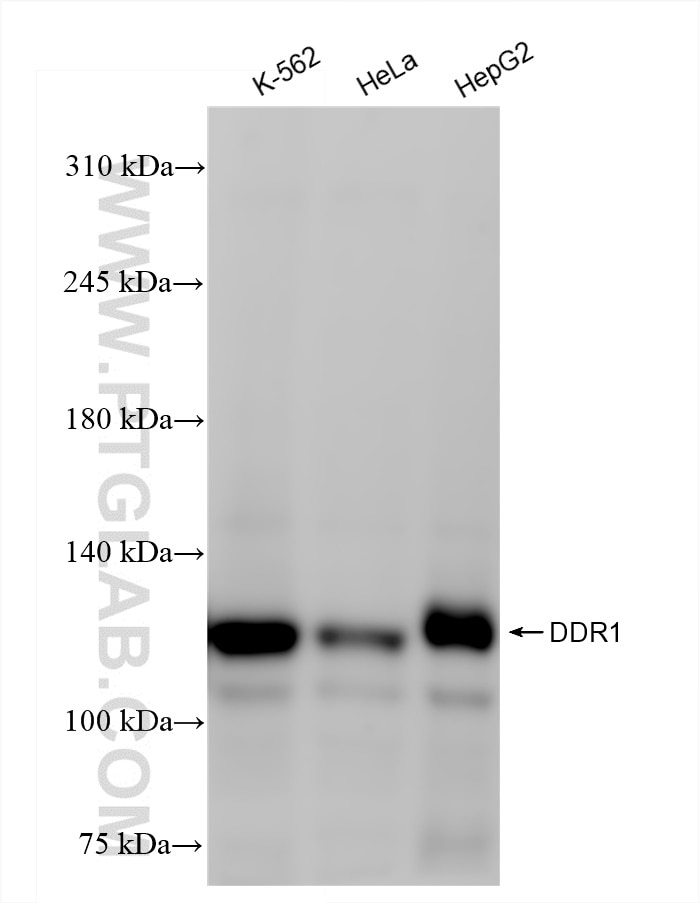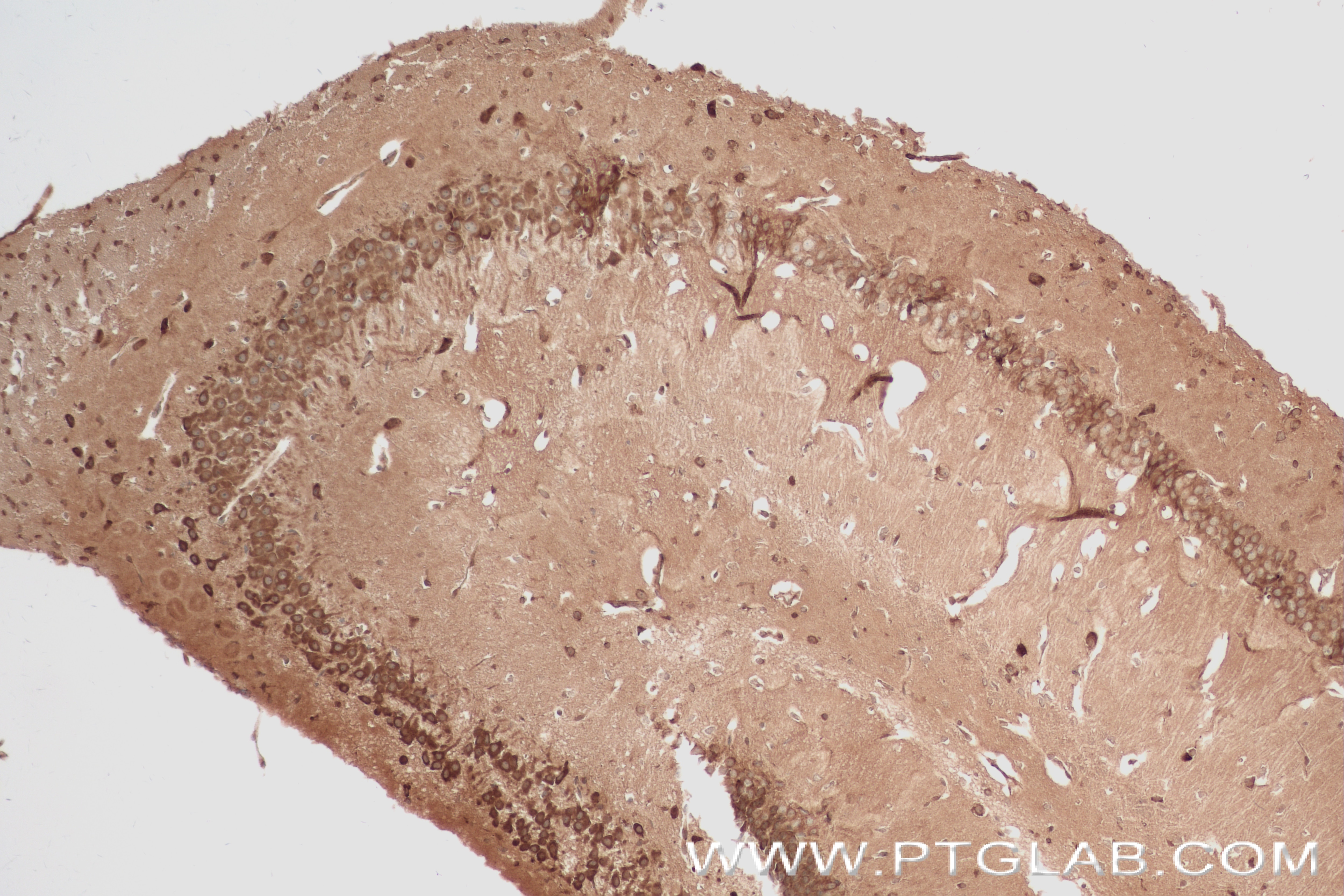Validation Data Gallery
Tested Applications
| Positive WB detected in | K-562 cells, HeLa cells, HepG2 cells |
| Positive IHC detected in | mouse brain tissue Note: suggested antigen retrieval with TE buffer pH 9.0; (*) Alternatively, antigen retrieval may be performed with citrate buffer pH 6.0 |
Recommended dilution
| Application | Dilution |
|---|---|
| Western Blot (WB) | WB : 1:500-1:2000 |
| Immunohistochemistry (IHC) | IHC : 1:50-1:500 |
| It is recommended that this reagent should be titrated in each testing system to obtain optimal results. | |
| Sample-dependent, Check data in validation data gallery. | |
Product Information
84438-6-RR targets DDR1 in WB, IHC, ELISA applications and shows reactivity with human samples.
| Tested Reactivity | human |
| Host / Isotype | Rabbit / IgG |
| Class | Recombinant |
| Type | Antibody |
| Immunogen | FusionProtein 相同性解析による交差性が予測される生物種 |
| Full Name | discoidin domain receptor tyrosine kinase 1 |
| Calculated molecular weight | 101kDa |
| Observed molecular weight | 120 kDa |
| GenBank accession number | NM_001297654.2 |
| Gene Symbol | DDR1 |
| Gene ID (NCBI) | 780 |
| RRID | AB_3671964 |
| Conjugate | Unconjugated |
| Form | Liquid |
| Purification Method | Protein A purfication |
| UNIPROT ID | Q08345-1 |
| Storage Buffer | PBS with 0.02% sodium azide and 50% glycerol pH 7.3. |
| Storage Conditions | Store at -20°C. Stable for one year after shipment. Aliquoting is unnecessary for -20oC storage. |
Background Information
DDR1, or Discoidin Domain Receptor 1, is a member of the receptor tyrosine kinase (RTK) family, which plays a significant role in various cellular processes including cell proliferation, adhesion, migration, and extracellular matrix (ECM) remodeling. DDR1 is known for its unique discoidin domain that allows it to bind specifically to certain collagens, initiating downstream signaling pathways that can lead to cell transformation and tumor progression. Abnormal activation of DDR1 is closely associated with the development of various solid tumors, and it has been shown that DDR1 can prevent immune cells from infiltrating triple-negative breast cancer (TNBC) and eliminate tumor cells.
Protocols
| Product Specific Protocols | |
|---|---|
| WB protocol for DDR1 antibody 84438-6-RR | Download protocol |
| IHC protocol for DDR1 antibody 84438-6-RR | Download protocol |
| Standard Protocols | |
|---|---|
| Click here to view our Standard Protocols |

